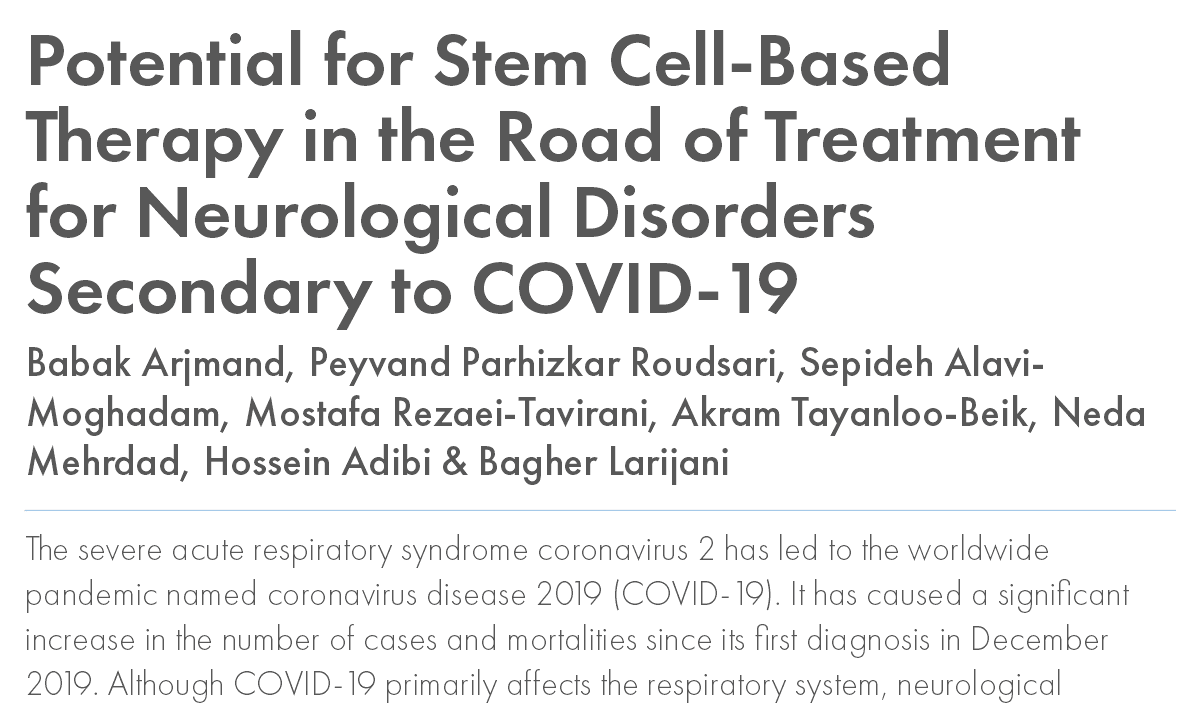U-MSC and Derived Exosomes Therapies
Advancing Neurological Care with U-MSC and Exosome Therapies
Regenerative medicine provides a new treatment option for individuals with neurological disorders.
Regenerative Medicine for Neurological Health
For many years, treatment options for neurological disorders have primarily focused on symptom management, often leaving patients with persistent challenges and a reduced quality of life. At OmniStem, we are committed to advancing care and recovery by harnessing the regenerative potential of umbilical cord-derived mesenchymal stem cells (U-MSCs) and their derived exosomes.
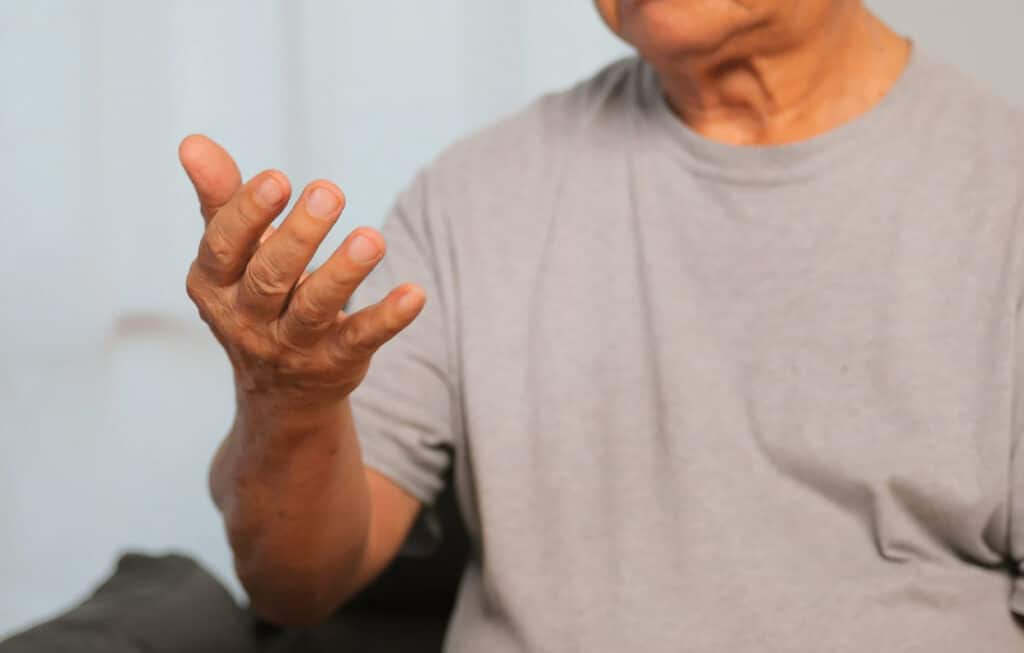
How U-MSC and Exosomes Therapies Support Neurological Function?
U-MSCs and their derived exosomes work synergistically, offering a comprehensive therapeutic approach to neurological health through several key mechanisms.
Inflammation Regulation
Neurological conditions often involve chronic inflammation, which can exacerbate damage. U-MSCs release anti-inflammatory factors that can help modulate inflammation within the central nervous system.
Neuroprotection
By secreting neurotrophic factors, U-MSCs can shield neurons from ongoing damage and support their long-term survival, particularly in cases like traumatic brain injury or stroke.
Angiogenesis and Blood Flow
U-MSCs can stimulate the formation of new blood vessels, which is critical for tissue repair and neural recovery in areas with compromised blood supply.
Trophic Support for Neuronal Growth
Through the release of growth factors and cytokines, U-MSCs provide the necessary support to enhance the growth and resilience of neurons and other supporting cells.
Enhanced Cell Communication
Exosomes from U-MSCs facilitate communication between cells within the nervous system, encouraging the transfer of regenerative signals and fostering an environment conducive to repair and regeneration.
Neuronal Growth
U-MSCs release neurotrophic factors that directly support the growth, survival, and resilience of neurons, strengthening neurological recovery.
U-MSC
Derived from the umbilical cord, U-MSCs are multipotent cells capable of transforming into various cell types, including neural cells. This makes them exceptionally valuable in promoting regeneration and recovery within the nervous system.
U-MSC Derived Exosomes
These are tiny vesicles released by U-MSCs that carry proteins, lipids, and RNA to facilitate cell-to-cell communication. By transmitting regenerative signals, exosomes play a vital role in guiding and enhancing the body’s natural healing processes.
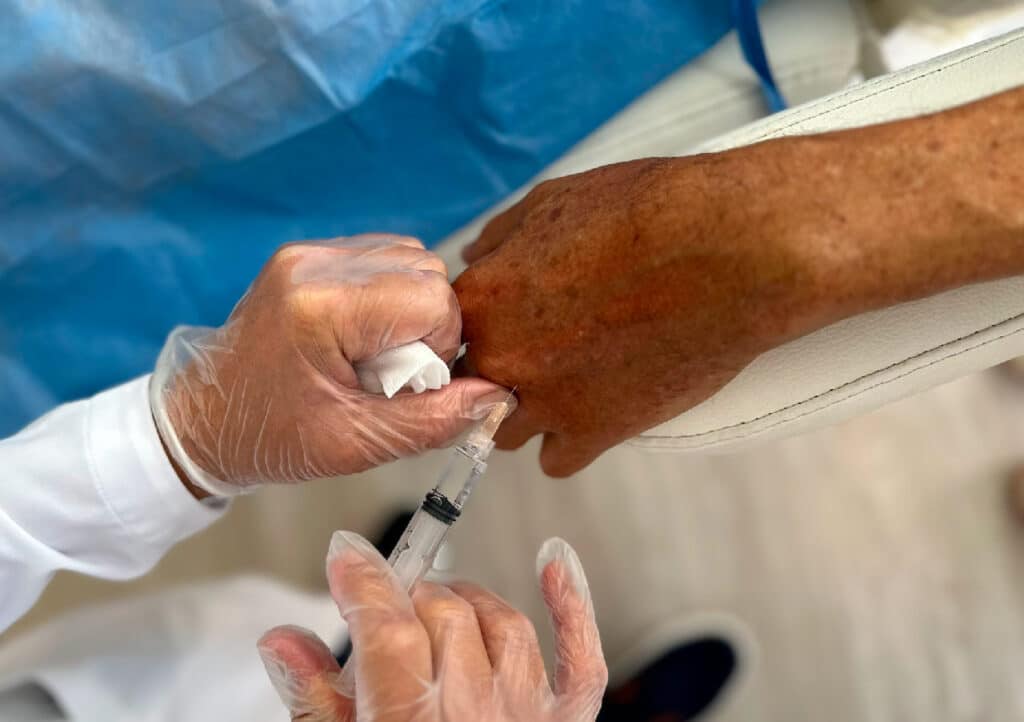
Conditions Treated
U-MSC and exosome therapies at OmniStem are currently used to support the treatment and recovery of a wide range of neurological disorders, including:
• Multiple Sclerosis (MS)
• Parkinson’s Disease
• Amyotrophic Lateral Sclerosis
• Guillain-Barré Syndrome
• Stroke Recovery
• Spinal Cord Injury
• Traumatic Brain Injury
• Huntington’s Disease
Regenerative Neurology
OmniStem’s regenerative medicine therapies mark a step forward in addressing neurological conditions. By offering treatments capable of replacing, repairing, and rejuvenating damaged cells, we aim to provide lasting relief and a renewed sense of hope for those affected by these complex conditions.
Arjmand, Babak; Roudsari, Peyvand Parhizkar; Alavi-Moghadam, Sepideh; Rezaei-Tavirani, Mostafa; Tayanloo-Beik, Akram; Mehrdad, Neda; Adibi, Hossein; Larijani, Bagher
Potential for Stem Cell-Based Therapy in the Road of Treatment for Neurological Disorders Secondary to COVID-19 Journal Article
In: 2021.
@article{nokey,
title = {Potential for Stem Cell-Based Therapy in the Road of Treatment for Neurological Disorders Secondary to COVID-19},
author = {Babak Arjmand and Peyvand Parhizkar Roudsari and Sepideh Alavi-Moghadam and Mostafa Rezaei-Tavirani and Akram Tayanloo-Beik and Neda Mehrdad and Hossein Adibi and Bagher Larijani },
url = {https://link.springer.com/article/10.1007/s40883-021-00234-x},
year = {2021},
date = {2021-10-29},
abstract = {The severe acute respiratory syndrome coronavirus 2 has led to the worldwide pandemic named coronavirus disease 2019 (COVID-19). It has caused a significant increase in the number of cases and mortalities since its first diagnosis in December 2019. Although COVID-19 primarily affects the respiratory system, neurological involvement of the central and peripheral nervous system has been also reported. Herein, the higher risk of neurodegenerative diseases in COVID-19 patients in future is also imaginable. Neurological complications of COVID-19 infection are more commonly seen in severely ill individuals; but, earlier diagnosis and treatment can lead to better long-lasting results. In this respect, stem cell biotechnologies with considerable self-renewal and differentiation capacities have experienced great progress in the field of neurological disorders whether in finding out their underlying processes or proving them promising therapeutic approaches. Herein, many neurological disorders have been found to benefit from stem cell medicine strategies. Accordingly, in the present review, the authors are trying to discuss stem cell-based biotechnologies as promising therapeutic options for neurological disorders secondary to COVID-19 infection through reviewing neurological manifestations of COVID-19 and current stem cell-based biotechnologies for neurological disorders.},
keywords = {},
pubstate = {published},
tppubtype = {article}
}
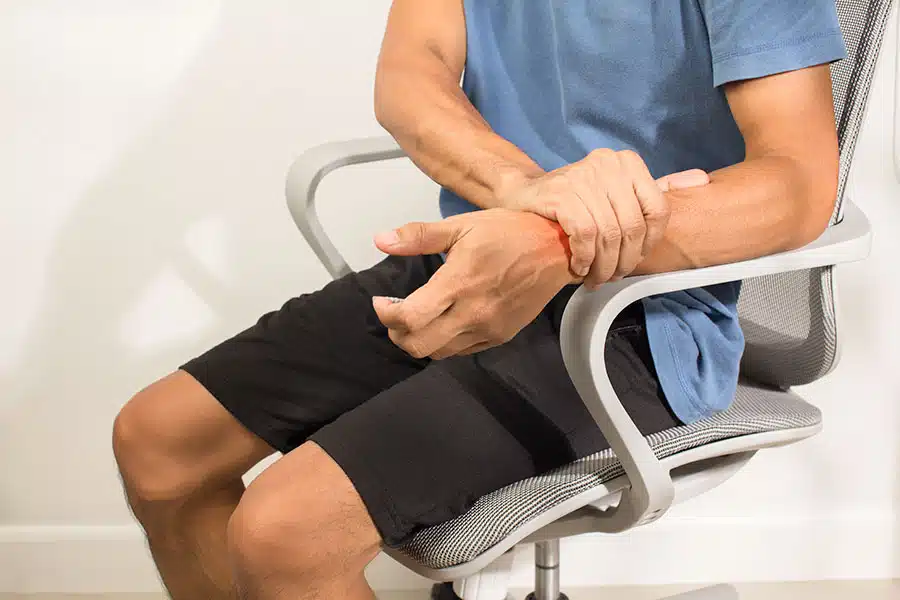
Regenerative Medicine
Complete the form to receive detailed information about regenerative medicine therapies for neurological conditions.
- Secure HIPAA Compliant
- 48 Hours Response
- No Obligations
GETTING STARTED
Start by filling out our Pre Screening Questionnaire and a member of our team will reach out to discuss your interest and answer any initial questions.
PATIENT INTAKE QUESTIONNAIRE
Please fill out the patient intake questionnaire. This information will help our team better understand your medical history and needs.
SCHEDULE A VIDEO CONSULTATION
Book a video consultation with our medical team. During this consultation, you may be asked to provide any relevant medical records or images for review.
Final Review
Our team will conduct a final review of your case, and we will outline the recommended next steps based on your consultation and submitted information.
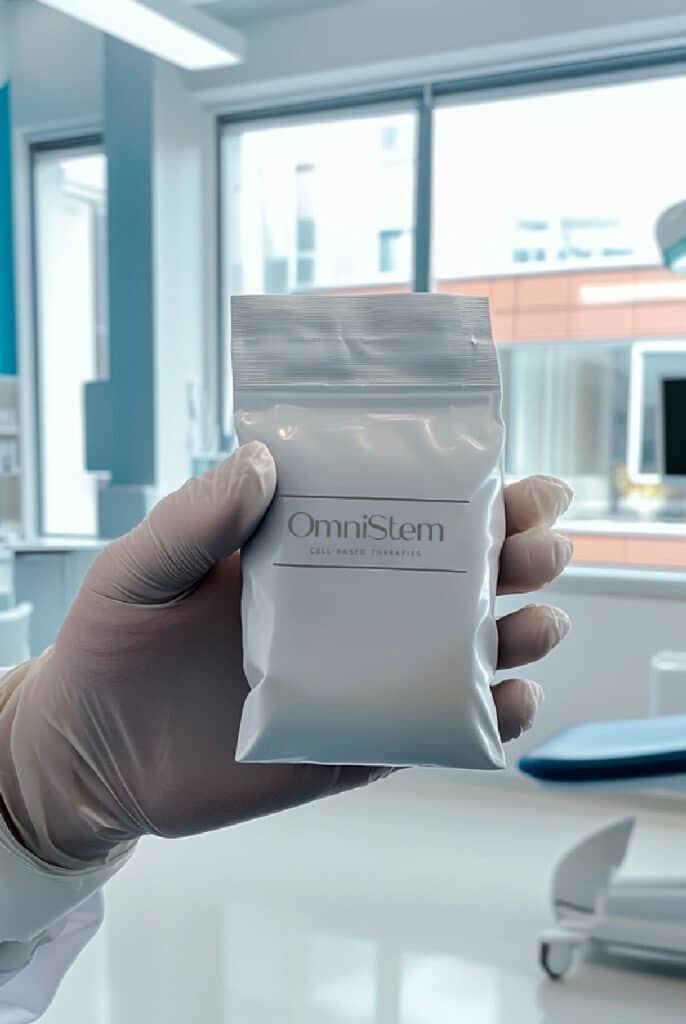
OmniStem Cell-based Therapies
Frequently Asked Questions
Please explore our Resource Center for helpful information. If you have any additional questions, feel free to contact our patient care team for assistance.
Umbilical cord mesenchymal stem cells (U-MSCs) are a type of adult stem cell found in Wharton’s jelly, a gelatinous substance within the umbilical cord. These cells have the ability to differentiate into various cell types, such as bone, cartilage, and fat cells, making them highly valuable for regenerative medicine and cell therapies.
Exosomes are microscopic, sac-like vesicles naturally released by cells, containing a rich payload of proteins, RNA, and other biomolecules essential for cellular communication and repair. Typically 30–200 nanometers in size, these extracellular vesicles play a pivotal role in maintaining and restoring cellular health.
At OmniStem, we harness the therapeutic potential of exosomes derived from umbilical cord mesenchymal stem cells (U-MSCs). These exosomes act as messengers, delivering regenerative signals to damaged tissues to support healing and reduce inflammation.
U-MSC stem cell treatments are considered specialized and are generally not covered by insurance plans.
U-MSC-derived allogenic stem cell therapies are currently not allowed in the U.S.
While mesenchymal stem cells (U-MSCs) have received FDA approval, the FDA does not permit the expansion of allogenic stem cells. As a result, patients undergoing these therapies in the U.S. typically receive a limited number of cells, which may reduce the potential benefits, including the use of U-MSC-derived exosomes.
At OmniStem, we use a safe and controlled laboratory process to expand these cells, enabling us to administer tens of millions of U-MSCs and U-MSC exosomes to our patients. This approach significantly enhances treatment outcomes.
This is a key reason many individuals travel to countries like Colombia, Panamá, Mexico, and the Dominican Republic to seek recognized providers of the most advanced regenerative medicine biologics available.
Our main facilities are located in the city of Pereira, in Colombia. We have specialized clinics and application centers for stem cell treatments that comply with all biosafety protocols and the highest safety standards. Pereira is the capital of the Colombian coffee region, one of the wonders of tourism in the country, and a World Heritage Site declared by UNESCO.

